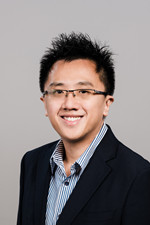Special Session 4: Emerging Topics in Business, Science, Environment and Education
Emerging developments
across business, science, environmental
sustainability, and education illustrate
the accelerating convergence of
technological advancement with complex
global challenges. In the realm of data
analytics, rapid progress in AI-driven
predictive modeling and generative
artificial intelligence is transforming
how decisions are made—enabling
real-time forecasting, enhanced
automation, and the creation of
synthetic data to support industries
ranging from healthcare to logistics.
Businesses, responding to both
regulatory pressure and stakeholder
expectations, are increasingly embedding
Environmental, Social, and Governance
(ESG) principles into their operational
frameworks. Here, AI plays a crucial
role in monitoring ESG performance,
while innovations such as blockchain and
decentralized finance (DeFi) are
redefining transparency, accountability,
and transactional efficiency. Scientific
research is advancing at a remarkable
pace, with breakthroughs in CRISPR
gene-editing technologies, quantum
computing, and synthetic biology opening
new frontiers in disease treatment,
materials science, and high-performance
computation. These innovations are not
only reshaping research paradigms but
also driving applications with profound
societal impact. Environmental science
is at the forefront of urgent efforts to
address climate change, with significant
investment in carbon capture
technologies, long-duration renewable
energy storage, and smart grid
infrastructure that enables more
efficient and adaptive energy
distribution. At the same time, concepts
such as urban biodiversity preservation
and circular economy design are gaining
momentum, as cities seek to enhance
resilience and sustainability in the
face of ecological stress.
Education systems are undergoing a
parallel transformation, fueled by
AI-powered personalized learning
platforms that adapt content to
individual student needs. The growing
adoption of micro-credentials is
enabling targeted, flexible upskilling,
particularly in response to the rapidly
changing demands of digital and green
economies. Additionally, virtual and
augmented reality technologies are
expanding access to immersive,
interactive learning environments,
helping to bridge geographic and
socioeconomic divides.
Across all these domains,
interdisciplinary collaboration is
becoming essential. These intersecting
developments highlight a pressing need
for innovation that is not only
cutting-edge but also ethically grounded
and socially responsible, capable of
addressing the multifaceted challenges
of the 21st century.
Special Session Chair

|
Chiang Liang Kok, University of Newcastle, Australia & Newcastle Australia Institute of Higher Education, Singapore |
Biography:
In 2010, Dr Kok graduated with First
Class Honours in Bachelor of Electrical
& Electronic Engineering from Nanyang
Technological University (NTU). His
exceptional performance earned him the
highly coveted Singapore EDB Integrated
Circuit Design PhD Scholarship to pursue
his PhD at NTU. In 2014, Dr Kok was
awarded his PhD Degree in Electrical &
Electronic Engineering in which he
delved deeply into power management
units, AI, sensors and energy harvesting
systems. He also served as an NTU
undergraduate tutor and teaching
assistant for NTU-TUM Master courses. In
2014, Dr Kok joined the Ministry of
Défense, Mindef DSO National Lab as a
senior member of technical staff. Here,
he spearheaded several state-of-the-art
projects, earning acclaim with the
prestigious Design Innovation Award
(Individual) at the Electronics division
level. Dr Kok was invited to be the
Adjunct Professor (Faculty Member) at
Singapore University of Social Sciences
(SUSS), where he teaches electronics
courses with passion. In 2021, he was
bestowed with the prestigious Gold Medal
Award for Teaching Excellence
(University level) at SUSS.
In 2020, Dr Kok joins the Newcastle
Australia Institute of Higher Education
as a lecturer and program coordinator
for the Bachelor of Electrical and
Electronic Engineering (BEEE). His
influence extends far beyond the
classroom, as evidenced by his exclusive
invitation to the Channel News Asia
(CNA) Money Mind programme in May 2021,
where he shared his expertise on
blockchain technology and sustainable
energy solutions. In Nov 2021, he
receives the Best Paper award at the 3rd
ICESA. Dr Kok also serves as chairman
for the STEM Industrial Advisory Board
Committee and a committee member for the
PEI Exam Board Council. His expertise is
sought after on the international stage,
with invitations as keynote/plenary
speaker and local organising chair for
GMASC 2023, MSM 2024, CCCN 2024, ASET
2024, ACEE 2024 and PCDS 2024.
Furthermore, he is in the technical
program committee for ICET 2024, ITET
2024, ICICDT 2024, TENCON 2024 and RASSE
2024. He is also the chairperson and
moderator for WES 2023, session chair
for AGBRP 2024, TENCON 2024 and ISCAS
2024. He also serves as the publicity
chair for MCSoC 2024 and RASSE 2024.
Recently, he also serves as the special
session chair and co-trainer for
workshop titled “Modern Technologies for
Sustainability and Asset Management” in
McSOC 2024. In July 2024, he is
appointed to the Topical Advisory Panel
for MDPI Electronics, Circuit and Signal
Processing Section. He also serves as
guest editor and reviewer for esteemed
Q1/Q2 ranking journals such as MDPI
Sensors/Electronics/Applied Sciences,
IEEE Access, Circuits, Systems, and
Signal Processing and IEEE Transactions
on Industrial Electronics. Till date, he
has been awarded research funding of
more than S$240K in both PI and co-PI
capacity. With over 50 publications in
Q1/Q2 ranking journals, top conferences,
and several book chapters, Chiang
Liang's scholarly impact continues to
reverberate across the global
engineering landscape.